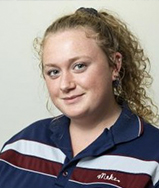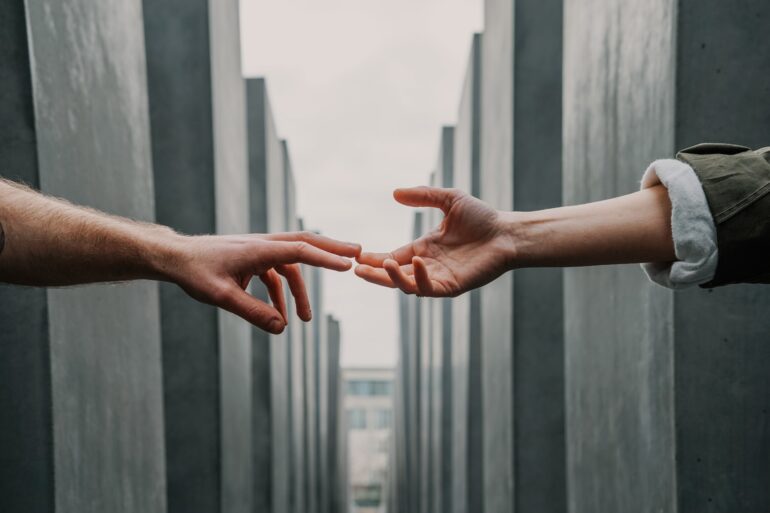This year, from October 2-8, we celebrate Mental Health Awareness Week — a national, week-long observance that discusses, examines and advocates for mental health conditions. The series also aims to “raise awareness of mental illness, fight discrimination and provide support,” according to the National Alliance on Mental Illness, who founded the tradition in 1990.
Yet, the importance of mental health and the need for widespread access to mental health services are not issues that come to an end when the week is over. Instead, let it be the launching point for a deeper commitment to a community that often walks in darkness. By offering support via donations, volunteer work or advocacy, you are making an impact which in real-time will benefit the institutions that are serving people in our communities who need support.
In an effort to help readers navigate their giving, Better has compiled a list of organizations — many of which are Chicago-based — that are actively supporting those who are battling mental illness or distress — be it in youth, adults, families or communities at large. Consider offering support today and continuing your advocacy all year-long.
How To Help:
National Alliance on Mental Health (NAMI) Cook County Northern Suburbs
NAMI’s national presence in the field of mental health has done undoubtable good. Their endless programs, events, educational material, crisis resource lists, classes and more are all a part of a safety net they have built, specifically in the Cook County Northern Suburb area. While monetary donations are always welcome and appreciated, being a physical volunteer, becoming a NAMI member or speaking candidly about the realities of mental health illness does so much good for both their organization and the conversation surrounding mental health. Consider supporting their mission by visiting the NAMI website, where a full breakdown of their resources can also be found.
Little Otter
View this post on Instagram
As conscious mental health care providers, Little Otter recognizes that when a child is having “big feelings, and having a tough time, it’s hard on the entire family.” That’s why their services support youth from ages 0-14 and their families, with a variety of programs that best fit any family’s dynamic. Special to this organization, Little Otters offers both tele-health services and an app-based help line called Kelp Line — where families can pay a monthly fee and receive access to personal mental health care on-the-spot. This innovative organization could always use extra support; people looking to donate to the cause or in need of more information, visit the Little Otter website.
Above and Beyond Family Recovery
Above and Beyond uses a holistic approach to mental wellbeing, where personal growth is encouraged through education, socialization, employment readiness, interpersonal relationship support and more. For individuals battling substance use disorders, Above and Beyond is also a vital resource to lean on. At this organization, individual treatment is a right for anyone who seeks it — regardless of financial status. Their mission “hinges” on the generosity of donors and volunteers; through donated time and resources, they are able to continue their life-saving impact in West Side Chicago communities. Additional information on donations and volunteer opportunities can be found on the Above and Beyond Family Recovery website.
Mental Health Association of Greater Chicago
For over six decades, the Mental Health Association of Greater Chicago has brought mental health education and solutions into schools, communities and families. Their services treat those suffering from mental illness and crisis as well as helping clients look to next steps as they feel more empowered in themselves and supported by their communities. Through their “tested, research-based education programs and resources,” MHAGC partners with thousands of students, parents and educators annually to create better building blocks for the discussion and treatment of mental health. Their webinars and programs zero in on some of the common ways we miss-step when handling mental health. Do better for yourself and others by looking into the work they do, and for those able to do so, send a donation that could impact someone today! More information is available on the Mental Health Association of Greater Chicago website.
Depression and Bipolar Support Alliance
This national organization has countless chapters — with several locations in the Chicagoland area — which speaks to just how important of a resource they are in the fight to bring awareness and support to those who battle Depression and Bipolar Disorder. DBSA not only offers mental health care through treatments and support groups but they are also a top-notch resource for education on the realities of Depression and Bipolar Disorder. Their work shines a special light on those suffering from mental health disorders that effect millions of Americans. To support this finely-tuned cause, visit the Depression and Bipolar Support Alliance website — where additional information about their work can be found.
Mental Health America of the Northern Suburbs
With their Northern Suburbs chapter located in Skokie, Mental Health America’s mission to bring awareness and reduce stigma surrounding mental health is at Chicagoans’ doorstep. Their mission can be boiled down to, simply, “Mental health is for everyone.” Which is why the resources and programs they offer are so diversified, from youth and adults to crisis lines and mental health screenings. What began in Evanston has now grown to encompass the North Shore — help them continue their reach either monetarily or through volunteer work. Read more on available opportunities and Mental Health America’s impact at the Mental Health America of the Northern Suburbs website.
Thresholds
Most Chicagoans have likely seen a Thresholds’ building in or outside the city but few know the impact this organization actually has throughout the Chicagoland. Since 1959, Thresholds has brought aid to those who suffer from mental illnesses and substance use disorders. Through housing, job opportunities, a sense of community, countless programs and tons of dedicated staff across the ranks, this organization breaks “cycles of poverty and unemployment [through] our innovative research and advocacy,” according to their site, to name only a few of the things they do. The organization continues their necessary work with the support of donors and ongoing advocacy. To be a part of this great mission, visit the Thresholds website for more.
Anxiety & Depression Association of America
Navigating the services of the Anxiety & Depression Association of America is relatively easy, as their site breaks down their offerings with categories: “For the Public” and “For Professionals.” While the latter offers educational materials and more to keep professionals grounded in their pursuits, the former walks users through what Anxiety and Depression really are, and how they can find help. Their motto, “Triumphing through science, treatment and education,” is simple and effective, as they use their resources to bring relief to those who suffer now and better inform the mental health landscape for those to come. Their website also helps users find a therapist, should they need one. Educational events, public resources and true understanding are at the heart of the Anxiety & Depression Association of America, considering donating to their efforts today for a better tomorrow.
The Family Institute at Northwestern University
Life’s challenges are unpredictable but how we respond to them doesn’t have to be. At the Family Institute at Northwestern University, issues related to mental health are treated as seriously as they ought to be, as it is a vital part of our overall health. Whether “struggling through any one of life’s many stages, healing from trauma, repairing a broken relationship or learning to understand ourselves and loved ones better,” the Institute is equipped to bring healing to anyone of any age or family dynamic. The Institute offers full transparency on the costs of their services, which are detailed on The Family Institute at Northwestern University website. By donating to their organization, you can ensure a family or individual receives the care they need if they are not financially able. It could also go to support the next generation of mental health clinicians, who are vital to the field of mental health.
Looking for help? Our Better List has resources ready to assist you or a loved one:
If you or someone you know is at risk of suicide, please call the Suicide & Crisis Lifeline number, 9-8-8 — a new, three-digit dialing code — or visit the Suicide & Crisis Lifeline website for more resources.
More from Better:
- Chicago Sky Launches The Net, a Mental Health Initiative to Increase Support and Encourage Transparency Among Athletes
- Hurricane Ian Devastates Florida: How To Help Those Impacted by the Storm
- You Are Not Alone: Advice, Help and Resources for Suicide Prevention and Mental Health Awareness

Margaret Smith is a Chicago-based writer and editor with a passion for socio-political storytelling about their community. They are a graduate of Columbia College Chicago.

